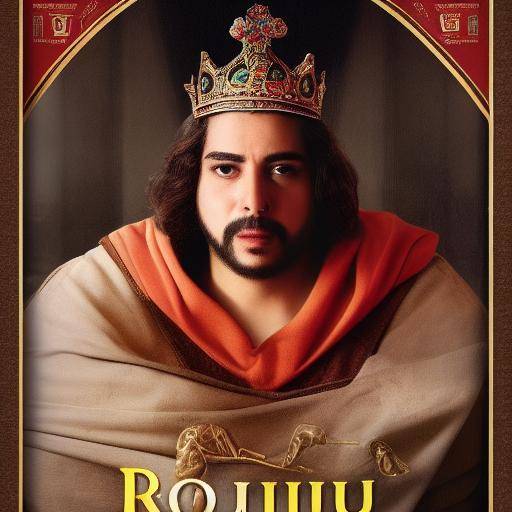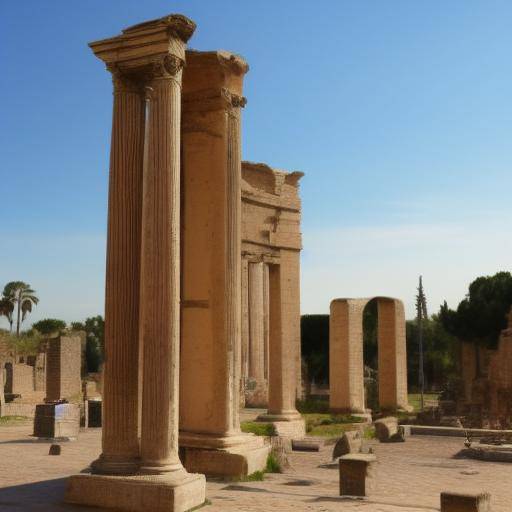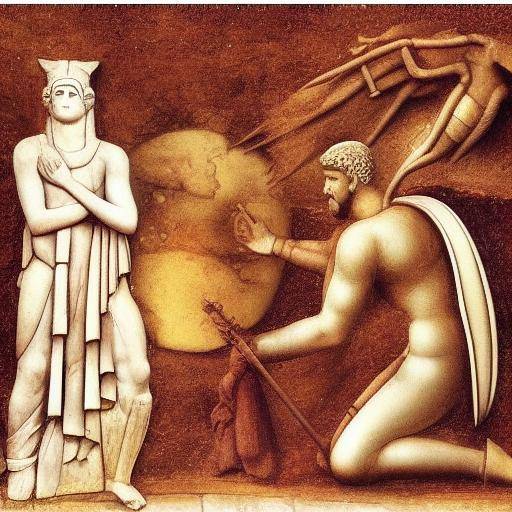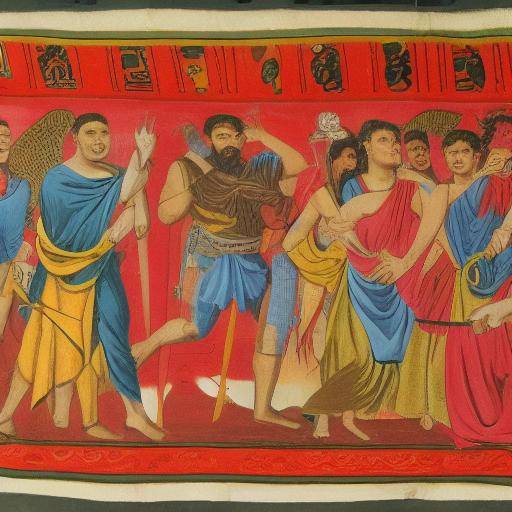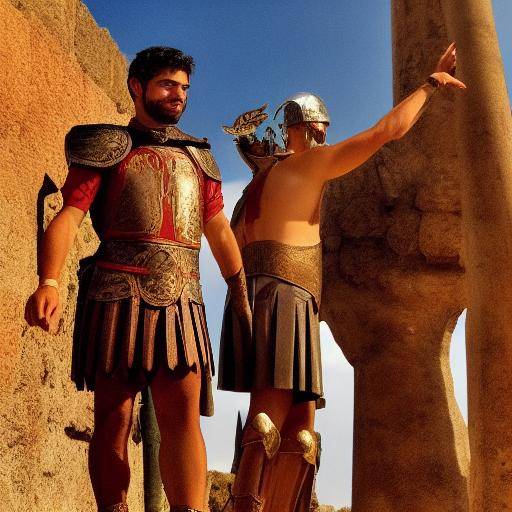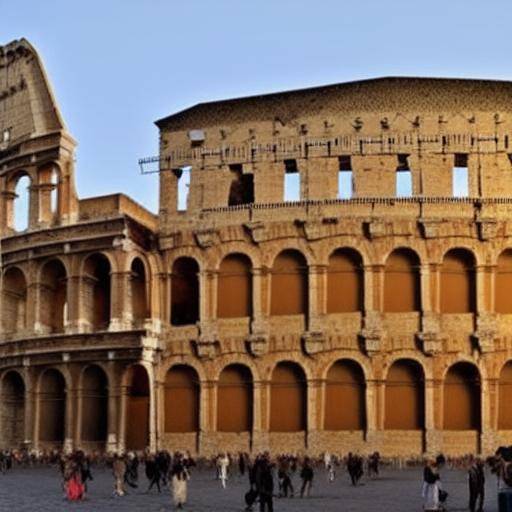
The history of the foundation of Rome through the legend of Rómulo and Remo is a fascinating story that has captured the imagination of people for centuries. In this article, we will explore in detail the Roman mythology, from its roots to its impact on the foundation of ancient Rome. We will discover the relevance of myths in Roman history and cultural legacy, as well as their impact on today's society. Join us on this journey through history, mythology and the foundation of one of the most influential civilizations in the world.
Introduction
Roman mythology is a fundamental aspect of Roman culture and identity. His stories and legends have endured over the centuries, transmitting from generation to generation. The legend of Rómulo and Remo, sons of Mars and mythical founders of Rome, is one of the most emblematic narratives that has left an indelible mark on the collective history and imagination. In this article, we will explore the meaning of this legend and its connection to the foundation of ancient Rome, as well as its impact on Roman culture.
Rhomulus and Remo: Roman Mythology and Rome Foundation
History and Background
The legend of Rómulo and Remo dates back to the foundation of Rome, and its origin is intertwined with Roman mythology. According to tradition, Rómulo and Remo were the twin sons of Mars, the god of war, and Princess Rea Silvia. Abandoned to their fate and breastfeeding by a wolf, the twins grew to fulfill their destiny as the founders of one of the most important cities of antiquity: Rome.
The interpretation of this legend goes beyond a simple mythical narrative; it represents the union between the divine and the human, the legacy of Roman grandeur and the symbolism of a powerful and eternal city. Although its legendary character is undeniable, the history of Rómulo and Remo offers a unique perspective on the birth of a civilization and its influence on the historical future.
Deep analysis
The legend of Rhomulus and Remo is a symbolic reflection of the aspirations and desires of Roman society. The myth establishes a parallel between the foundation of the city and the fundamental values that supported the Roman identity, such as courage, cunning and determination. This mythical story not only reveals the fascination of the Romans for their past, but also projects the image of a powerful Rome destined to greatness.
The impact of Roman mythology on the foundation of Rome goes beyond the purely symbolic. Artistic representations, architecture, religion and Roman political institutions are permeated with references to their myths and legends, which demonstrates the deep influence of mythology in all aspects of Roman life.
Comprehensive review
The foundation of Rome through the legend of Rómulo and Remo is a theme that has generated a wide debate between historians, archaeologists and scholars of antiquity. The different interpretations of the history of the founding twins and their role in the creation of Rome offer a complex and multifaceted look at an event that has marked the course of history.
Comparative Analysis and Future Trends
Comparison between Rómulo and Remo and Other Legends
The legend of Rómulo and Remo is not isolated, but is part of a rich set of myths and legends that tell the history of Roman mythology. By comparing it to other mythical narratives, such as Hercules or the foundation of other ancient cities, we can appreciate the similarities and differences that underlie the symbolic construction of civilizations.
Future and Prognostic Trends
Roman mythology and the legend of Rhomulus and Remo will remain an inexhaustible source of inspiration and study for generations to come. As archaeology and historical research continue to unravel the mysteries of the past, new discoveries and innovative approaches are likely to emerge that shed light on the foundation of Rome and its connection to mythology.
Conclusions and FAQs
Conclusions
In short, the history of the foundation of Rome through the legend of Rómulo and Remo is much more than a mythical account: it is a reflection of the identity, culture and grandeur of ancient Rome. This narrative, impregnated with symbolism and meaning, has endured over the centuries, leaving an indelible imprint in history and collective imagination.
Frequently asked questions
1. What is the origin of the legend of Rómulo and Remo?
The legend of Rómulo and Remo dates back to the foundation of Rome, and its origin is intertwined with Roman mythology. According to tradition, the twins were the sons of Mars, the god of war, and Princess Rea Silvia.
2. What is the symbolic meaning of the legend of Rómulo and Remo?
The history of Rhomulus and Remo symbolizes the foundation of Rome, the legacy of Roman greatness and represents the union between the divine and the human. In addition, it projects the image of a powerful Rome destined to greatness.
3. How has Roman mythology influenced the culture and identity of Rome?
Roman mythology has left an indelible mark on Roman culture, manifesting itself in artistic manifestations, architecture, religion and Roman political institutions. Myths and legends offer a fundamental view of the values and ideals of Roman society.
4. What impact does the legend of Rómulo and Remo have in today's society?
The influence of the legend of Rhomulus and Remo extends to contemporary society, being a symbol of Roman history and identity. The mythical narrative remains a source of inspiration and study in various disciplines, including history, art, literature and philosophy.
5. Are there archaeological evidences of the existence of Rhomulus and Remo?
The historicity of Rómulo and Remo is the subject of debate among scholars, and although there is no concrete evidence of their existence, the legend remains an essential aspect of Roman identity.
6. What is the relevance of Roman mythology today?
Roman mythology remains a source of study and inspiration, providing a deep understanding of antiquity and its legacy in contemporary society.
In conclusion, the legend of Rómulo and Remo, together with the Roman mythology as a whole, represents a lasting legacy that transcends time and remains an inexhaustible source of study and inspiration. Its impact on the history, culture and identity of Rome is undeniable, and its influence will endure through generations, enriching our understanding of the past and projecting a light on the legacy of one of the most influential civilizations in history.

